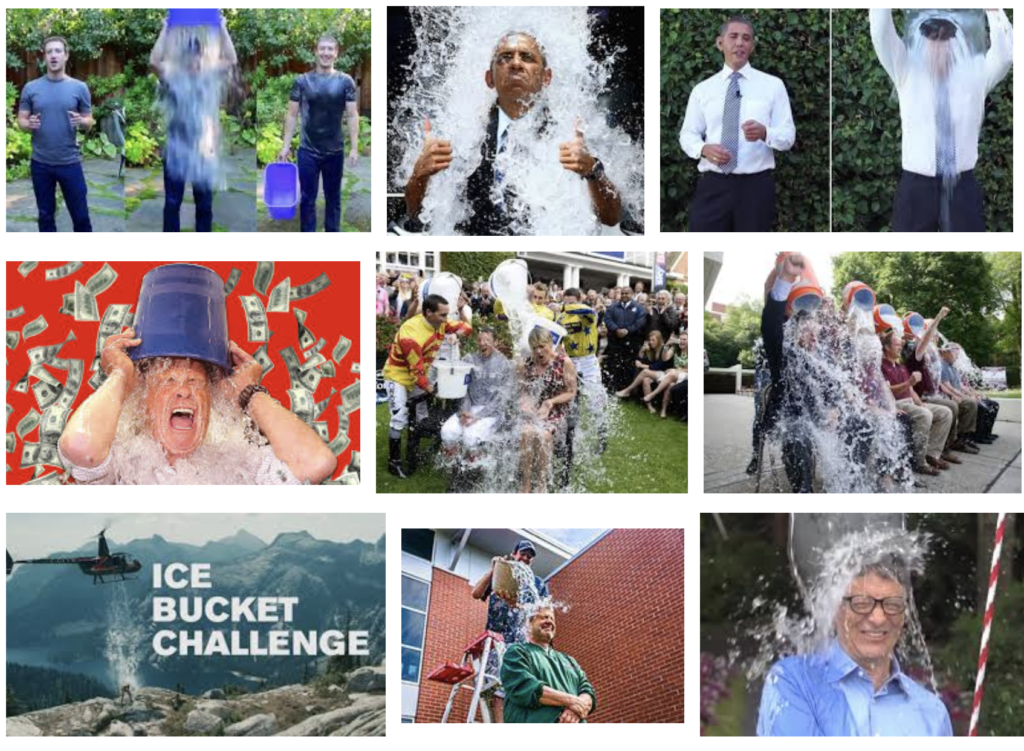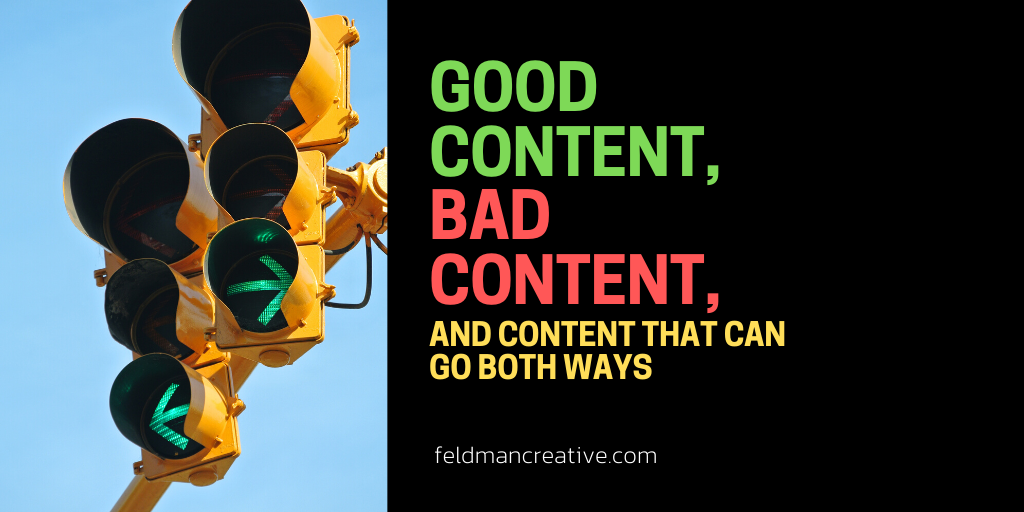In recent years I’ve discovered a fair amount of pushback from brands regarding how they value social sharing, an obvious form of word of mouth. Inexplicably, the idea of content sharing gets a ho-hum reaction. I gather responses such as:
-
Social media takes too much time.
My response: Yes, social media takes time. Everything takes too much time if you’re unable to realize its potential benefits. And everything’s worth the time when you make it work.
-
Social sharing is declining.
My response: True statement. As brands relentlessly blitz social media, you have to create remarkably valuable content and promote it to succeed.
-
Social shares are a vanity factor that means little or nothing to our brand.
My response: Yes, of course it’s difficult to place a dollar value on social shares, but no, social sharing means a lot to your brand.
Social shares are a component of the digital content marketing ecosystem with interrelated elements that impact each other. Notably, social shares:
- Increase the reach of your content
- Increase the credibility of your message
- Win your brand new followers, fans, and possibly referral sources
- Reach other content creators who may publish your ideas, cite your brand, and create links to your website and blog, which…
- Improves your search engine rankings
Finally, and above all…
- Social sharing is free
When you learn how to get people to share your content you leverage (arguably) one of the most effective tactics in digital marketing and (indisputably) the least expensive content promotion channel.
Word-of-mouth (WOM) is and always will be the most effective form of marketing. I’ll spare you the usual pile of stats and summarize in two lines:
- Ads and messages coming directly from brands are received with skepticism.
- Recommendations and endorsements from friends and like-minded peers have a trust factor that boosts conversion.
This notion, that is, WOM fosters credibility, is not new. What is new (well, sort of) is how social media changes the game. Obviously, social sharing has the potential to immensely accelerate the spread of a story.
 Remember the ALS Ice Bucket Challenge from the summer of 2014?
Remember the ALS Ice Bucket Challenge from the summer of 2014?
Produce something worth sharing
First, let’s look at some fundamental ideas about your approach to content creation.
Make awesome content
People share what they love. Ask yourself: Did I make something lovable? Would my audience thank me for it? Would it be worthy of emailing to a friend?
Think big
Of course memes or funny photos and videos stand the chance of inciting shares, but in the business realm, you increase your chance of earning shares by publishing and promoting long-form content that oozes value.
Choose hot topics
Learn what your audience loves. Look at search volume. Ask sales people for customer insights. Note what topics and types of updates are shared.
Create content with staying power
Research from the social media experts at Buzzsumo explains authoritative evergreen content consistently gains shares and links.
Write great headlines
Most sharers will take the easy route and click a social media icon to invoke the share process. Generally, that means your headline is what will be shared. Make your headline as magnetic as possible. Arouse curiosity. Promise benefits.
Now let’s examine the types of content and various formats that have proven to garner more attention and earn more shares. You might mix-and-match them and experiment with your own variations.
Research
While it takes time and effort to conduct research and present your findings, a strong, relevant research report will position your company as an authoritative leader and is likely to produce a remarkable amount of shares, links, and website traffic.
Infographics
People love to share infographics. Make a good one and watch what happens.
Videos
Most of the social media channels make it easy to create or post videos now. Try making your social post a short video about your content.
Images
Stock photos are boring. Make awesome images for your posts and if time allows, make an interesting featured image for posts that don’t have one.
Lists
Clearly, lists are one of the most popular formats. This eBook is a list. Readers adore lists. They’re easy to skim, easy to process, and often, deemed valuable. As such, they not only get shared; they get saved.
Roundups
One of the most shared content types are roundups: posts and other types of content where a number of experts respond to a question. Roundups not only appeal to readers, they tend to get shared by the people in them. Try to roundup insights from industry experts and influencers that have authority and social media clout.
Co-creations
Create content in tandem with other relevant voices in your industry and double up its promotion. Interviews work well.
Interactive
Interactive content is raging hot and quizzes are its hottest form. Buzzsumo blog contributor Stephen Walsh describes quizzes as “content marketing’s secret weapon.” He writes, “Data shows that on average a quiz gets shared 1,900 times.”
Tools
Utility is the name of the game in content marketing and magnetic as all get-out. An immensely powerful way to attract a crowd and enjoy a pass-along effect is to create useful tools such as a widgets, plugins, calculators, assessments, and templates.
Don’t create it, curate it
You don’t have the time or resources to create the content types above? Let’s revisit some of the items on the prior list and look at how to curate popular content types in an effort to win shares.
Research
- Repurpose a research report into a presentation, post, or infographic.
- Create a social update that highlights a single graph or data point.
- Create a simple image that highlights an item from the research.
Infographics
- Take a screenshot of a highlight of an infographic and share it.
- Take an infographic apart build a post with pieces of it.
Videos
- Find a video that offers an embed codes and embellish your blog post with it.
- Create social posts that pull a quote from a video.
Roundups
- Roundups will have individual images and passages you can share.
- Run with the topic of a roundup you’re not in by adding your point of view.
Interactive
- Get involved in the interactive content. Take an assessment; enter a contest, etc. Then share the results, what you learned, what you created, etc.
You’ll help yourself in the share-o-sphere if you think about the psychology of sharing. I have a fairly substantial list of ideas for you…
Make content sharing easy
Put share buttons and tweetable passages where viewers expect to find them. Share bars that remain onscreen while users scroll will outperform those found only atop or below blog posts.
Pepper your content with sound bites
Have fun with metaphors and other literary techniques to turn a phrase. For example, I once wrote, “Your website is a mousetrap and your content is the cheese.” Five years later, it still gets tweeted often.
Include customers
Promote your clients’ stories and content. Connect their stories to yours if you can.
Engage with communities
Find online communities where content’s being shared and join the conversation. Join communities and forums with like-minded professionals and/or customers. Make connections and build goodwill that’ll lead to mutual back scratching.
Tag whomever’s tag-worthy
When you share any kind of content that features other people and brands, tag them. They’ll get a heads-up and be just a click or two away from joining the sharing party.
Make special deliveries
If you have the email addresses of people featured in your content or those that are likely to share it, send them an email announcing its availability. Don’t be pushy though.
Ask for shares
Here’s a no brainer: write, “Please share this.” HubSpot’s Dan Zarella determined asking for retweets increases them by 4X.
Reward sharing
Some of your marketing campaigns, such as contests and promotions, will allow you to reward participants for sharing your content with points, discounts, etc.
Thank sharers
Find the time to say thanks to those that shared your posts and updates. Your efforts won’t go unnoticed, so you’re bound to foster fruitful relationships and get more shares in the future.
Highlight the a-ha’s
Emphasize the juiciest parts when you share your own content…. staggering statistics… unforgettable quotes. The simple “title + URL” approach isn’t always interesting enough.
Rewrite the headline
Don’t share the headline word-for-word every time. Try variations. Write your own.
Tap into emotions
Try to move people emotionally. Aim to invoke happiness, outrage, excitement, urgency, etc.
Reciprocate
Share other people’s stuff every chance you get. Build a goodwill network.
Vanilla is a popular flavor, but no one’s bound to tell their friends about it. It’s not unique. Be unique. Introduce jalapeño-flavored ice cream now and then.
Review, rave and rant
Express your opinions about anything relevant. I’ve found a strong point of view usually elicits responses.
Outrageous
If you can get behind it without faking it, share outrageous stuff. I’ve found when I get a little pissy—authentically pissy, that is—on LinkedIn, my posts earn a crazy amount of engagement.
Be funny
Making someone laugh or smile will inspire shares.
Be challenging
Take a counterpoint to posts you don’t agree with.
Be transparent
Everything you publish doesn’t have to be good news. Don’t be afraid to recognize the road bumps. People respond to authenticity.
Highlight achievements
Deliver good news about your brand or industry.
Create challenges
Ask questions. Conduct contests.
Make offers
Tell your readers you’ve got something valuable for them and deliver.
Tap trends
Track current events and what’s trending and tap into the buzz.
Support a cause
Research reveals more than 80 percent of people share content that allows them to be supportive of specific charities and causes. Establishing a meaningful connection with a charity or cause (or creating your own) is likely to garner attention and shares on social media.
I made up the quoted term above. You’ll get the idea.
There are a ton of social media management platforms and specific tools you can tap into learn, assess your progress, monitor the competition and market, and automate some processes.
Subscribe to alerts
Stay in the know about what’s going on in your industry by setting up alerts and news feeds. Use social media tools to track keywords and content. Having a grasp of what’s getting attention will help inform smart social media tactics.
Monitor mentions
Rather than endorse any one social media tracking tool, I’ll recommend you do a search for “tracking media mentions” and try some of the popular (and often free) options.
Use Buzzsumo
Buzzsumo is powerful online tool that allows you to see what content is being shared on the leading social media channels. You can do queries by topic, author or URL. You can also specify the timeframe. A handy Chrome extension makes Buzzsumo assessable from any site.
Schedule posts in advance
Again, I’ll refrain from plugging a specific tool and urge you to search for “schedule social media posts.” You’ll discover a litany of choices with an array of features. Understand, however, some social channels are getting a bit finicky about certain practices, so you’ll serve yourself best by playing by the rules.
Check your analytics
There are many ways to check on how your posts are shared and you’re bound to gather some useful takeaways when you dig into the analytics of your favorite channels. What’s more, a variety of platforms enable you to create dashboards to keep tabs on multiple channels in a glance.
Finally, make a habit of looking at your Google Analytics. There are endless ways to synthesize the data there. A simple look at [Acquisition > All traffic > Referrals] will reveal what channels are driving traffic to your website and provide details regarding user engagement that can be eye-opening.
Contact Barry at Feldman Creative to learn more about content creation and promotion to increase traffic, leads and sales.







Comments
udit khanna
Thanks for such a nice article…..
And yes, not just youth but all the businessman and other marketer also use social media for lead generation but we need to know that social media is mostly use for brand consideration not just to get lead. Social media creates a relation between customer and businessman and this is the reality of social media we need to understand
Alistar Scott
Great article, Barry! It’s important not to forget the role of images in SEO. The text behind the images can be a vital SEO tool, even if search engine algorithms can’t index these images themselves. Infographics are very popular among readers, as you have mentioned in your article. It allows them to get a lot of information quickly.
How to Become Champion in SEO Reseller with these 10 Essential Tips | Opptrends 2019
[…] available for your clients and ready with a dedicated team and manager. Also, keep spaces for free sharing of content formats and ideas to style and design the projects in a better way. The SEO reports are white labeled to […]